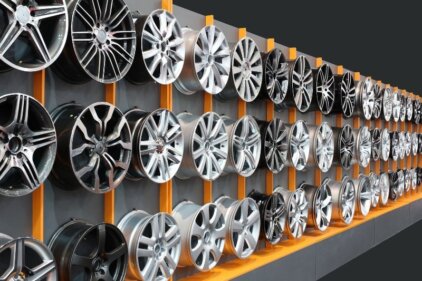Transportation has come a long way since the days of horse-drawn carriages. The revolution of transportation has brought us automobiles, trains, airplanes, and now, smart cars. These technologically advanced vehicles are set to transform the way we move from one place to another. In this article, I will delve into the revolutionary impact of smart cars on transportation and explore the various benefits, challenges, and concerns associated with this emerging technology.
The evolution of transportation: From horses to automobiles
The revolution of transportation began with the invention of the automobile, which replaced the traditional horse and carriage. This invention brought about a significant change in the way people traveled, allowing for faster and more efficient transportation. However, the impact of smart cars on transportation is set to be even more revolutionary.
Smart cars are equipped with advanced technologies such as artificial intelligence, sensors, and connectivity features. These technologies enable smart cars to communicate with each other, with infrastructure, and with the surrounding environment. This connectivity opens up a whole new world of possibilities for transportation, including improved safety, reduced congestion, and enhanced efficiency.
Understanding the revolution of transportation
The revolution of transportation goes beyond just the vehicles themselves. It encompasses a complete transformation of the entire transportation ecosystem. Smart cars are not just about getting from point A to point B; they are about reimagining the way we move and interact with our surroundings.
The revolution of transportation is driven by the need for sustainable and efficient mobility solutions. With the rise of urbanization and increasing concerns about climate change, traditional modes of transportation are no longer sufficient. Smart cars offer a more sustainable and environmentally friendly alternative, with the potential to reduce carbon emissions and improve air quality.
Advancements in smart car technology
Smart car technology has advanced rapidly in recent years. From autonomous driving capabilities to intelligent navigation systems, these advancements are reshaping the transportation landscape. Autonomous driving, in particular, holds great promise for the future of transportation.
Autonomous vehicles have the potential to revolutionize not only personal transportation but also public transportation. Imagine a future where you can summon a self-driving car to pick you up and drop you off at your desired destination, eliminating the need for parking spaces and reducing traffic congestion. This technology has the potential to transform our cities and make transportation more efficient and accessible for all.
Benefits of smart cars for transportation
The benefits of smart cars for transportation are numerous. Improved safety is one of the most significant advantages. Smart cars are equipped with advanced safety features such as collision avoidance systems, lane departure warnings, and adaptive cruise control. These features can help prevent accidents and save lives.
Smart cars also offer enhanced convenience and efficiency. With intelligent navigation systems, drivers can avoid traffic congestion and find the most efficient routes to their destinations. Connectivity features allow for real-time updates on road conditions, weather, and other relevant information, ensuring a smoother and more enjoyable travel experience.
Challenges and concerns with smart cars
While smart cars offer numerous benefits, there are also challenges and concerns that need to be addressed. One of the main concerns is cybersecurity. As smart cars become more connected, they also become vulnerable to cyber attacks. Ensuring the security and privacy of smart car systems is crucial to prevent unauthorized access and potential risks.
Another challenge is the integration of smart cars with existing transportation infrastructure. As smart cars become more prevalent, our roads and transportation systems need to adapt to accommodate these vehicles. This includes the implementation of smart traffic management systems, intelligent traffic lights, and the development of infrastructure to support electric vehicles.
Smart cars and the future of transportation infrastructure
The revolution of transportation goes hand in hand with the evolution of transportation infrastructure. Smart cars require a supportive infrastructure to fully realize their potential. This includes the development of charging stations for electric vehicles, the integration of smart traffic management systems, and the establishment of communication networks to enable vehicle-to-vehicle and vehicle-to-infrastructure connectivity.
By investing in smart transportation infrastructure, we can create a more efficient and sustainable transportation system. Smart cars can communicate with infrastructure to optimize traffic flow, reduce congestion, and improve overall transportation efficiency. This will not only benefit individual drivers but also have a positive impact on the economy and the environment.
The economic impact of smart cars on transportation industries
The revolution of transportation brought about by smart cars will have a significant economic impact on various industries. The automotive industry, in particular, will undergo a transformation as traditional car manufacturers adapt to the rise of smart cars. New players, such as technology companies and startups, are also entering the market, further driving innovation and competition.
The transportation and logistics industry will also be affected by the revolution of transportation. Smart cars have the potential to optimize supply chains, reduce delivery times, and lower transportation costs. This will have a ripple effect on other sectors of the economy, improving productivity and creating new business opportunities.
Smart cars and the environment: A greener future
One of the key benefits of smart cars is their potential to create a greener future. With the increasing concerns about climate change and air pollution, the need for sustainable transportation solutions has never been greater. Smart cars, particularly electric vehicles, offer a more environmentally friendly alternative to traditional gasoline-powered vehicles.
Electric smart cars produce zero emissions, helping to reduce air pollution and combat climate change. In addition, the integration of renewable energy sources into the charging infrastructure can further reduce the carbon footprint of smart cars. This combination of clean energy and sustainable transportation has the potential to transform our cities and create a greener future for generations to come.
Embracing the revolution of transportation with smart cars
The revolution of transportation is underway, and smart cars are at the forefront of this revolution. These technologically advanced vehicles have the potential to transform the way we move and interact with our surroundings. From improved safety and efficiency to a greener future, the benefits of smart cars for transportation are undeniable.
However, to fully realize the potential of smart cars, we must address the challenges and concerns associated with this emerging technology. Cybersecurity, infrastructure integration, and the economic impact on industries are all areas that require attention and investment.
As we embrace the revolution of transportation with smart cars, we have the opportunity to create a more sustainable, efficient, and enjoyable transportation system. By investing in smart transportation infrastructure, promoting the adoption of electric vehicles, and fostering innovation, we can unlock the future of transportation and shape a better world for future generations.





